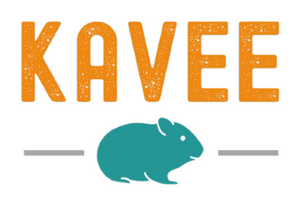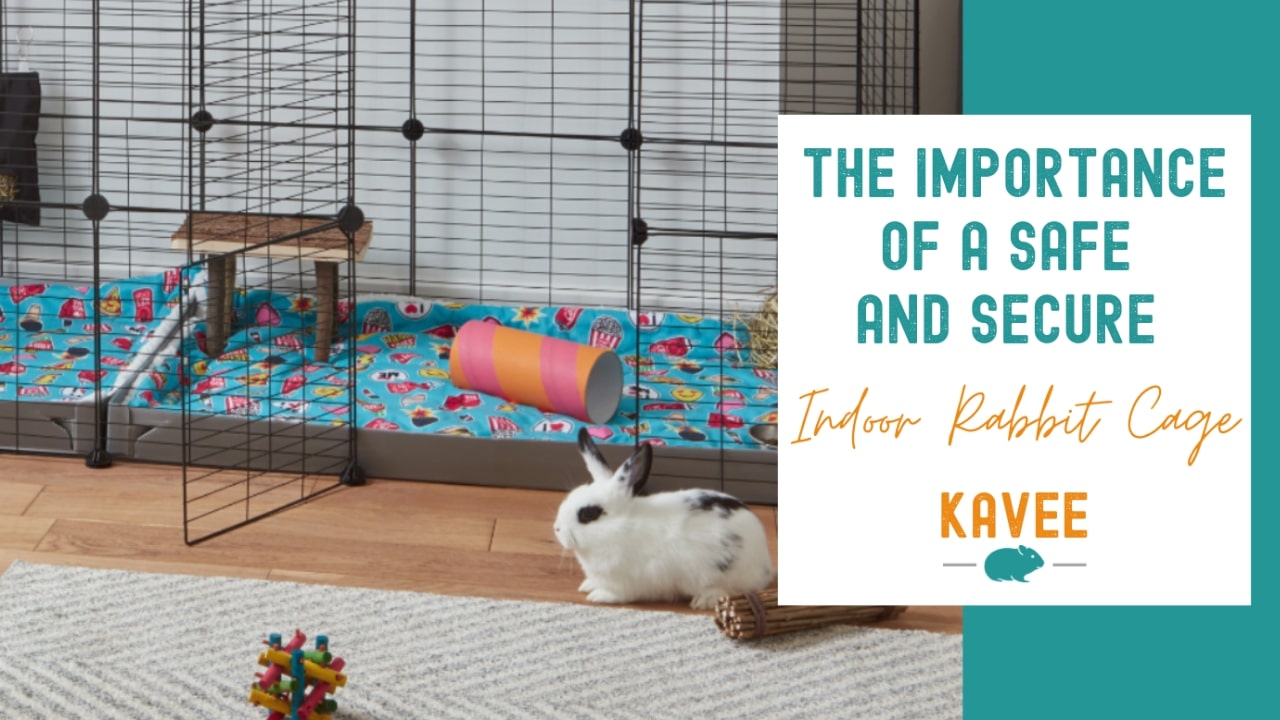As small pet parents ourselves, we totally get it! You love your buns to the moon and back and would move heaven and earth to keep them hoppy. So, it’s important to talk about something that significantly impacts their wellbeing: Rabbit cage safety.
Yep, it might not be the most exciting of topics, but it’s important to consider when choosing the best rabbit cage. Whether your rabbits reside indoors or outdoors, their lives depend on you providing them with a secure environment.
If this all sounds a little doom and gloom, then don’t panic! From the safety of cage materials to the importance of good ventilation and appropriate flooring, we’ll walk you through all the things you should consider to obtain a secure indoor rabbit cage.

Why Safety and Security Matter
Firstly, it should go without saying that your rabbit cage must be made of durable materials that lock securely into place. This not only protects your rabbits from potential predators, but also prevents any great escape attempts from your adventurous buns.
Rabbits are curious little animals that love to get up to mischief, so you’ll need a cage that can withstand normal bunny behaviors like burrowing and chewing. Flimsy cages will be no match for persistent nibblers, and risk causing more injuries with their sharp edges.
It’s important to also keep toxic houseplants and cables away from your bunny’s surroundings. It’ll only be a matter of time before your bun will try to get a taste and nobunny wants that!

Safe Rabbit Cage Materials
You can find indoor rabbit cages in a variety of materials, like wire, plastic, wood, and metal. But regardless of what they’re made of, one thing never changes: bunnies will try to bite on anything and everything!
This makes it all the more important that the cage you choose should be both safe and non-toxic for your buns. For example, plastic cages often lead to bunnies eating said plastic every time they take a bite - a sure-fire way to upset tummies if not cause worse health problems.
On the other side, wooden cages are difficult to clean, and let toxic cleaning products sink into the material. A significant danger if your bunnies were to start licking the wood!
Here at Kavee, we have put a lot of thought into the materials used in the construction of our rabbit cages. Our metal grids are coated with non-toxic paint that is safe for rabbits to chew on. Combined with a sturdy coroplast base and handy nibble guards!

Avoiding Sharp Edges
When rabbit cages are made from wood or wire, it’s important to remove any sharp angles and unfinished edges that could cause injury. And if they require a lot of DIY, then it’s going to be down to you to get their cage ready without causing potential harm.
That’s why we’re firm believers that C&C cages are the best option. With their interlocking grid structure that snaps firmly into place with connectors, there’s no need for DIY, scissors, glue, or tape - and so no chance of nasty sharp edges for your floofs to get caught on!
Secure Locks and Doors
A safe rabbit cage keeps any unwanted visitors out and mischievous buns safely inside. Even if you plan to let your rabbits roam freely most of the time, they’ll still need a secure cage to retreat to whenever needed.
You can protect your bunnies from larger household pets with a cage that comes with a lockable door and lid (but never leave your other pets near your buns unsupervised!). Look for a cage where the door construction and lid both lock firmly into place when shut.

Proper Ventilation
Your rabbits’ cage should be well-ventilated, dry, and draught-free. A poorly ventilated cage that is damp, hot, or unsanitary could lead to some nasty health conditions like respiratory tract disease or even pneumonia.
The best materials for proper ventilation are wire and metal, which allow for natural airflow throughout your bunnies’ cage. In particular, a C&C cage has been designed to help regulate your rabbits’ temperature and keep them neither too hot nor too cold.
Ventilation is important to prevent hypothermia and heatstroke. The latter can easily be caused by a wooden hutch that is exposed to a lot of sunshine, for example. Make sure to keep your rabbit cage away from windows with direct sunlight and radiators.

Appropriate Flooring
Last but not least, you’ll want to ensure that your rabbit cage comes with comfortable flooring for your bunnies’ delicate paws. Way too often, you’ll find cages with wire mesh flooring over a pull-out plastic tray - great for cleaning but terrible for your poor buns’ feet!
This is because they force them to constantly distribute their weight in an unnatural way, which can eventually lead to a painful condition known as ‘sore hocks’.
We absolutely see the need for easy maintenance, but bunny welfare and hooman practicality should always go hand in hand. This is why we only use sturdy, non-slip coroplast in the base of our C&C cages, topped off with a cozy fleece liner that feels super-soft against hoppy paws. Much better!

Conclusion
Hopefully, this blog has given you an insight into why you should take the safety and security of your rabbit cage ultra-seriously. To recap, you should always do your homework on:
- The materials your cage is made from - have they been tested to ensure that they are pet-safe and non-toxic?
- How well-constructed it is - are there any dangerously sharp or unfinished edges that could injure your buns?
- The locking ability of doors and lids - you’ll want to keep your bunnies from escaping, plus ensure that larger animals can't get in.
- The ventilation of the cage - choose a design that facilitates good airflow.
- The type of flooring available - bunnies that have to balance on wire mesh are at risk of developing painful sore hocks.
If you’re looking for a cage that you can trust - one designed with rabbit well-being as the number one priority - then have a browse of Kavee's range of safe and secure rabbit cages and fleece liners. We’ve obsessed over every little detail so that your rabbits are guaranteed a life of a-bun-dance!





